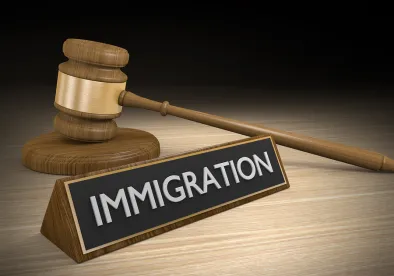After oral arguments on February 9th, the Ninth Circuit denied the government’s request to reinstate the travel ban EO. State of Washington v. Trump.
More than 135,000 people listened to the Ninth Circuit oral argument, which was conducted by phone and had no video, on the Court’s own live stream. News websites also carried the audio of the hearing, and CNN and MSNBC, in an unusual move, broadcasted the more-than-one-hour full hearing live. Over a two-day period prior to the hearing, more than a dozen amicus briefs had been filed by groups such as the Anti-Defamation League, SEIU, the U.S. Justice Foundation, HIAS (the oldest refugee resettlement organization in the U.S.), Constitutional Scholars, Law Professors, and the Washington State Labor Council.
In a rare joint effort, more than 100 companies, including high tech giants such as Apple, Akamai, Facebook, Google, Microsoft, Netflix, Twitter, and Uber, joined a single amicus brief against the ban. They argued that innovation and economic growth are tied to the contributions of immigrants and to the stability and predictability of U.S. immigration laws. CEOs at major tech companies, many of whom are immigrants themselves, also have taken to email and social media to express their concerns about the ban.
The effects of the Executive Order were felt immediately in Silicon Valley. Google apparently told its employees abroad who might have been affected to return home — “[w]e’re upset about the impact of this order and any proposals that could impose restrictions on Googlers and their families, or that could create barriers to bringing great talent to the U.S.” Microsoft reported that it had at least 76 employees on visas from countries affected by the EO. In light of concerns regarding immigration, Microsoft even has language in its January 26, 2017, securities filings for investors indicating that immigration restrictions “may inhibit our ability to adequately staff our research and development efforts.”
The amicus brief also had a “prologue” of sorts that addressed the role of immigrants in the U.S. and the companies’ economic concerns. It stated:
-
Immigrants have had a “tremendous impact” on the American economy, 200 of the Fortune 500 list of companies were founded by immigrants or their children, and “these companies generate annual revenue of $4.2 trillion, and employ millions of Americans.”
-
Whenever America has diverged from its ideals aimed at “attracting and incorporating” immigrants, these laws and policies, over time, have been discredited.
-
The EO harms the competitiveness of U.S. companies and “makes it more difficult and expensive for U.S. companies to recruit, hire, and retain some of the world’s best employees” because it “disrupts ongoing business operations” and “deprives employees and businesses of the predictability they require.”
-
The EO disrupts the global mobility that “is critical to businesses whose customers, suppliers, users and workforces are spread all around the world.”
-
Retaliatory actions by other countries could “hinder the U.S. companies’ ability to do business or negotiate business deals abroad.”
In its order, the Ninth Circuit, which geographically encompasses Silicon Valley, did not cite directly to this brief.




 />i
/>i

